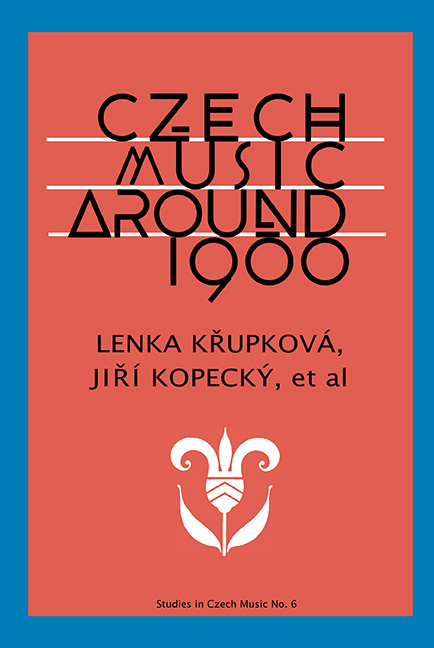Book contents
- Frontmatter
- Table of Contents
- Introductory Remarks on the Conception of This Book
- Flowers in the Graveyard, Tombstones in the Garden
- The “Other World” of Music at the Turn of the Century
- In the Footsteps of Tradition: The Spirit of Romanticism
- Czech Music at the Heart of European Music round 1900
- Novák as an Axial Figure in Czech Music
- Novák's Reception Abroad
- Josef Suk, Dvořák's Favorite Pupil
- Fibich's Path to Success in Prague's National Theater
- Tchaikovsky, Charpentier and the Formation of Janáček's Mature Operatic Style
- Josef Bohuslav Foerster's Lyrical Opera Eva and the Tradition of the French Drama lyrique
- Otakar Ostrčil and Mahler's Influence in Prague
- Folk Culture as an Outward Source of Artistic Inspiration: Vítězslav Novák the Tourist
- The Clash with Compositional Issues of European Music
- Index
- List of Illustrations
- About the Authors
- List of Sources Cited
Josef Suk, Dvořák's Favorite Pupil
from Czech Music at the Heart of European Music round 1900
- Frontmatter
- Table of Contents
- Introductory Remarks on the Conception of This Book
- Flowers in the Graveyard, Tombstones in the Garden
- The “Other World” of Music at the Turn of the Century
- In the Footsteps of Tradition: The Spirit of Romanticism
- Czech Music at the Heart of European Music round 1900
- Novák as an Axial Figure in Czech Music
- Novák's Reception Abroad
- Josef Suk, Dvořák's Favorite Pupil
- Fibich's Path to Success in Prague's National Theater
- Tchaikovsky, Charpentier and the Formation of Janáček's Mature Operatic Style
- Josef Bohuslav Foerster's Lyrical Opera Eva and the Tradition of the French Drama lyrique
- Otakar Ostrčil and Mahler's Influence in Prague
- Folk Culture as an Outward Source of Artistic Inspiration: Vítězslav Novák the Tourist
- The Clash with Compositional Issues of European Music
- Index
- List of Illustrations
- About the Authors
- List of Sources Cited
Summary
“That's music from heaven!” Thus Antonín Dvořák described the incidental music by Josef Suk (4 January 1874 - 29 May 1935) for the fairy-tale play Radúz a Mahulena (Radúz and Mahulena) by the Czech writer Julius Zeyer. During final rehearsals for and the premiere of this work (on 6 April 1898) at Prague's National Theatre, Suk was playing second violin in the Bohemian Quartet on a lengthy concert tour abroad. And so Dvořák attended rehearsals in his stead. He had been Suk's composition teacher at the conservatory in Prague, and soon after the premiere of Radúz became his father-in-law when Suk married his daughter Otilie. When the quartet returned from the tour Dvořák came to the railway station to welcome them, and said to Oskar Nedbal (violist in the quartet and also his former pupil): “that Radúz—that's music from heaven!” From this music Suk then fashioned (in 1899-1900) an orchestral suite titled simply Pohádka (A Fairy Tale), Op. 16, which was issued by the Berlin publisher of works by Brahms and Dvořák, N. Simrock, and is today rightly considered part of the “golden treasury” of Czech music. Suk later said of his music for Radúz and Mahulena:
I worked on this composition in the farmhouse in the forest in Vysoká, where Dvořák spent his summers. In the little room there was an upright piano, and my sweetheart Otilka [a diminutive form of the name “Otilie”] listened to me outside in the garden. Springtime in the soul, springtime in the music. I can tell you that in the music for Radúz and Mahulena I found myself, and that this work had an effect on my compositional output for many years.
Suk had been admitted to the conservatory in Prague at the age of eleven as a violin pupil of Anton Bennewitz. At that time students were admitted only once every three years, and Suk's father did not want to postpone his son's truly professional musical training. Starting with the fourth year of the curriculum students who showed talent in composition could add to study of their instrument also study in the composition department, which had a threeyear curriculum, but especially gifted students could extend their study by one more year, which Suk of course did.
- Type
- Chapter
- Information
- Czech Music around 1900 , pp. 125 - 144Publisher: Boydell & BrewerPrint publication year: 2017

